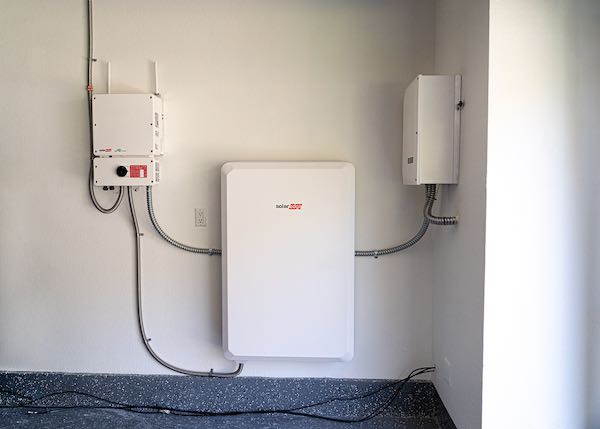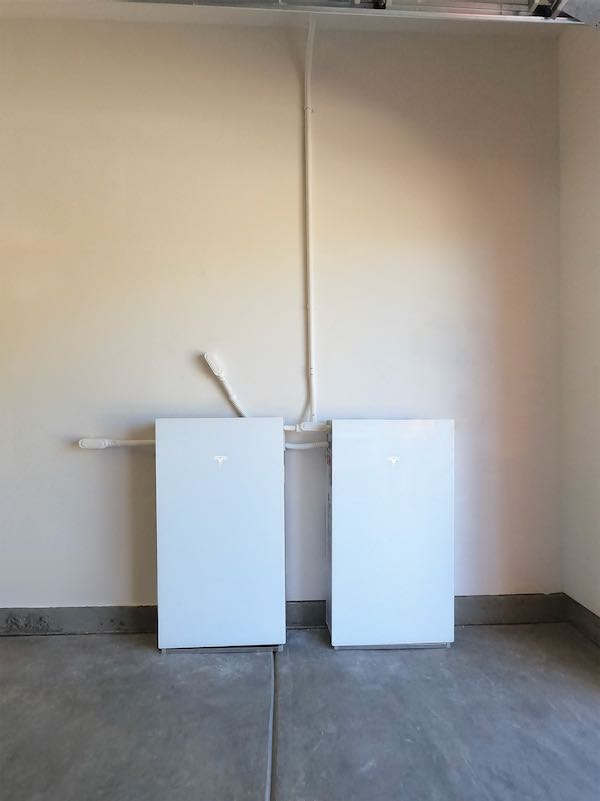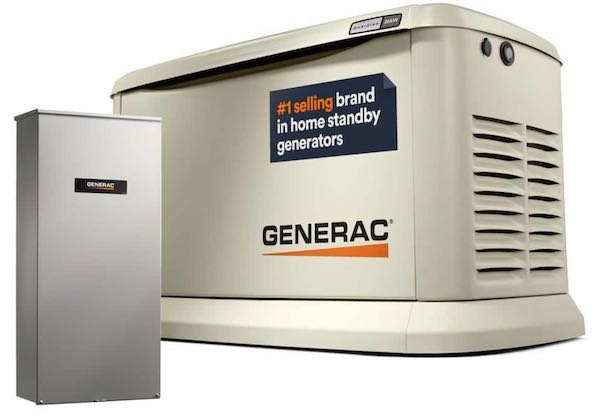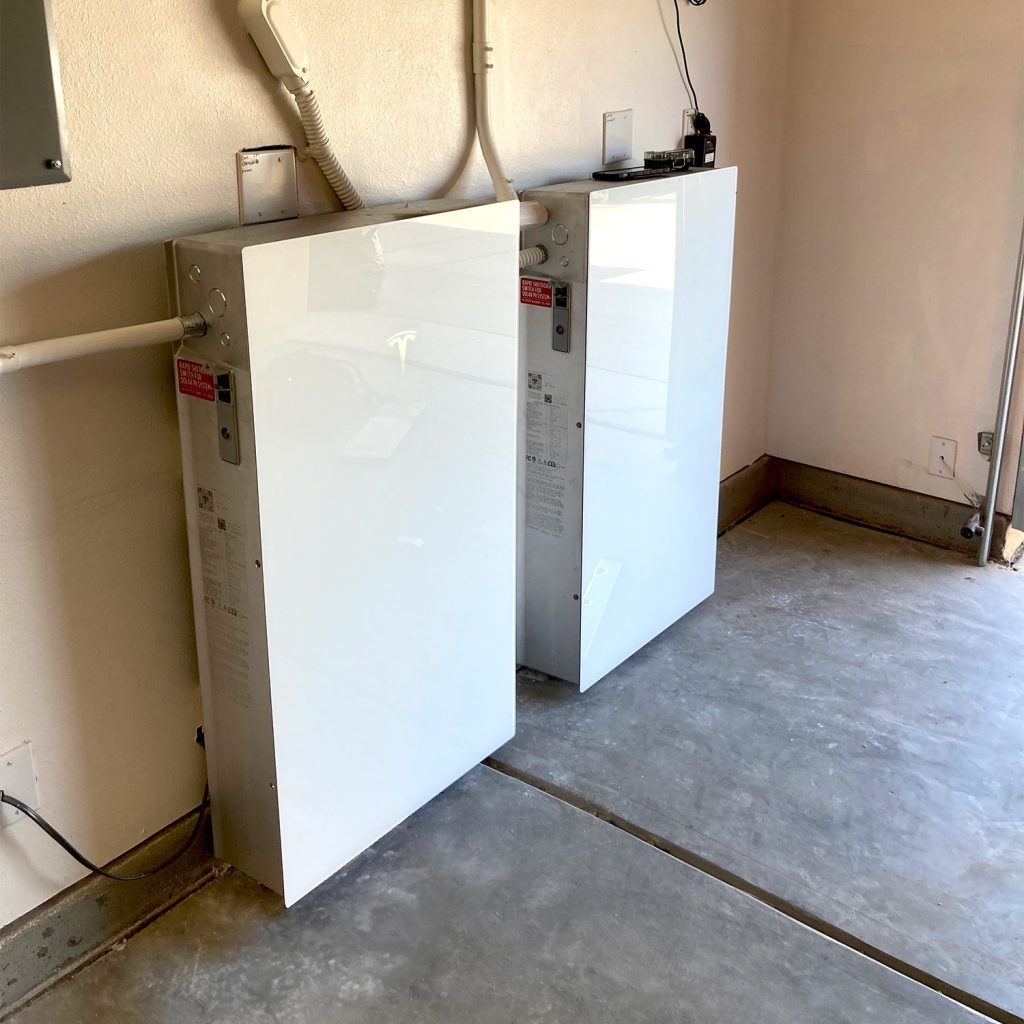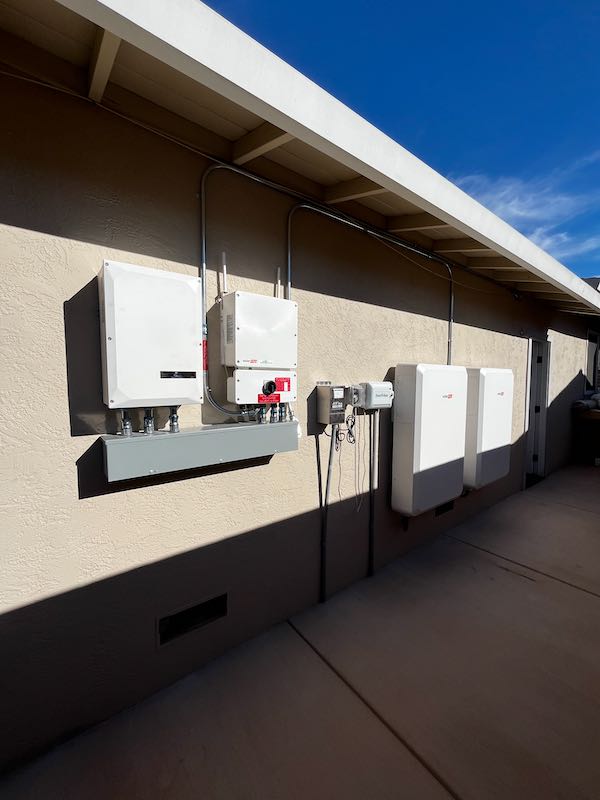Choosing a backup power solution for your home is a significant decision. It’s about more than just keeping the lights on.
It’s about ensuring your family’s comfort and safety during power outages. It’s about protecting your home and appliances from damage.
Home standby generators and battery backup systems are two popular options. Each has its unique features, benefits, and drawbacks.
This article will delve into the specifics of these two systems. We’ll compare their costs, maintenance needs, power output, and more.
Our goal is to provide you with the information you need to make an informed decision.
So, whether you’re a homeowner, a property manager, or just interested in emergency preparedness, keep reading. This guide is for you.
Understanding Home Standby Generators
Home standby generators are fixed devices installed outside your home. They automatically provide power during outages by using fuel like natural gas or propane.
These generators are connected directly to your home’s electrical system. This setup allows them to power your home seamlessly during an outage.
A primary advantage is their ability to power an entire house. This includes essential systems like heating, cooling, and appliances.
Home standby generators are designed for extended use. They can run for days if necessary, depending on fuel availability.
These systems require regular maintenance, such as oil changes and inspections, to ensure reliability.
Exploring Battery Backup Systems
Battery backup systems store energy for use during power outages. They can be charged using the grid or renewable sources like solar panels.
These systems are typically quieter than generators. Their operation involves less noise, making them more suitable for urban environments.
Battery backups are generally smaller and can be installed indoors. This feature makes them ideal for homes with limited outdoor space.
A significant benefit is their low maintenance. Unlike generators, they require minimal upkeep, focusing on occasional system checks.
Battery systems may not power a whole house. However, they can support critical appliances and devices during short outages.
The Importance of Backup Power for Homeowners
Having a backup power system is crucial for maintaining comfort and safety during outages. It ensures essential appliances continue to function.
Power outages can disrupt daily routines and cause inconvenience. A reliable backup system minimizes these disruptions effectively.
Backup power is particularly vital during extreme weather conditions. It helps maintain heating, cooling, and other critical systems.
For homeowners, a backup system provides peace of mind. It offers reassurance that power will remain, no matter the circumstances.
Initial Costs: Generators vs Battery Systems
The initial cost is a vital consideration when choosing between solar or propane for whole house backup system. Knowing these costs helps in budget planning.
Home standby generators often involve higher upfront costs. This includes equipment, installation, and setup expenses.
Conversely, battery backup systems can be more affordable initially. Their costs depend on the capacity and technology used.
Here’s a quick list to summarize initial costs:
Home standby generators vs battery generators:
- Home Standby Generators: Typically more expensive overall.
- Battery Backup Systems: Can be cheaper, depending on the specifics.
Price variations often depend on size and features. Evaluating your energy needs can guide an effective investment.
Long-Term Savings and Costs
Considering long-term costs is crucial for both systems. Maintenance, operation, and fuel expenses can vary significantly.
Home standby generators may incur fuel and regular maintenance costs. These can accumulate over time, affecting overall expenses.
In contrast, battery backup systems usually have lower maintenance needs. They also have the potential for long-term savings.
Some key points to consider for long-term costs include:
- Generator Maintenance: Regular servicing and fuel expenses.
- Battery Longevity: Low maintenance, possible replacement over time.
- Fuel Efficiency: Battery systems often offer better efficiency because they are powered by the sun!
Understanding these costs helps in evaluating the total cost of ownership. Prioritizing your budget will lead to smarter financial decisions.
Environmental Considerations
The environmental impact of backup systems is an important factor. Generators often run on fossil fuels, which have a bigger carbon footprint.
On the other hand, battery systems, particularly solar-powered ones, offer a greener alternative. They tap into renewable energy, reducing environmental harm.
Choosing the right energy source can significantly influence your carbon emissions.
When evaluating the eco-friendliness (is that a word?) of each option, consider:
- Fossil Fuel Emissions: Standby generators may release more pollutants.
- Renewable Energy: Solar-powered batteries are environmentally cleaner.
- Waste and Recycling: Battery disposal can affect the environment.
Opting for sustainable solutions can help reduce your household’s carbon footprint. This decision aligns with global efforts to combat climate change.
Maintenance and Upkeep
Maintaining a backup power system is crucial for ensuring reliability. Home standby generators require regular inspections and servicing.
This includes oil changes, filter replacements, and fuel checks.
In contrast, battery backup systems typically need minimal to no maintenance. Batteries should be routinely inspected for any wear or degradation.
The Tesla Powerwall 3 manual states:
The only maintenance required by an owner is to keep the Powerwall unit free and clear of debris, especially around the air intake and exhaust.
Key maintenance tasks may include:
- Generator Checks: Regular servicing is necessary.
- Battery Inspection: Look for any signs of wear. Keep the area around the unit free and clear of debris.
Regular upkeep of a generator increases it’s lifespan. It can prevent unexpected failures during critical times. Battery Backup Systems do not require the same level of maintenance.
Power Capacity and Output
Power capacity varies significantly between home standby generators and battery backup systems. Generators often deliver higher power output for entire homes as long as you have a constant source of fuel.
Battery backup systems typically offer lower power but can be engineered for larger power needs and a longer power outage.
Consider the following:
- Generators: Suitable for whole-house power if you have a fuel source
- Batteries: Typically best for key appliances but a larger battery storage solution can power your entire home.
- Duration: Dependent on the size of system you install
Understanding your home’s power needs is vital. This helps in choosing the most appropriate system.
System Activation and Operation
Activation and operation methods differ between home standby generators and battery backup systems. Generators usually come with an automatic transfer switch.
This switch ensures seamless operation during an outage. It activates the generator without any manual intervention.
Some battery backup systems may require manual setup unless automated. Many models now offer remote monitoring and control features.
Notable differences:
- Generators: Automatic start during outages.
- Batteries: Manual or automatic, with remote control options.
For example, the Tesla Powerwall 3 can be configured as a whole home battery backup with an automatic switchover. This can be achieved with the Tesla Backup Gateway 2, Gateway 3 or Tesla Backup Switch.
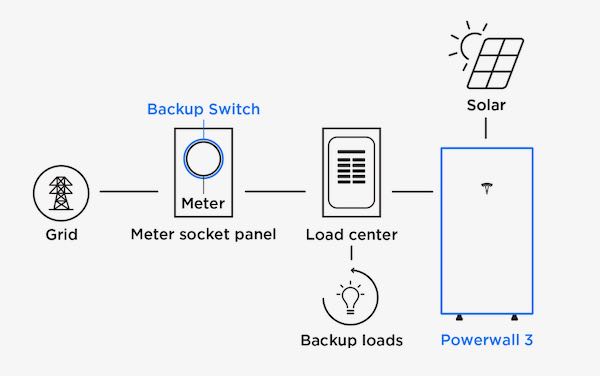
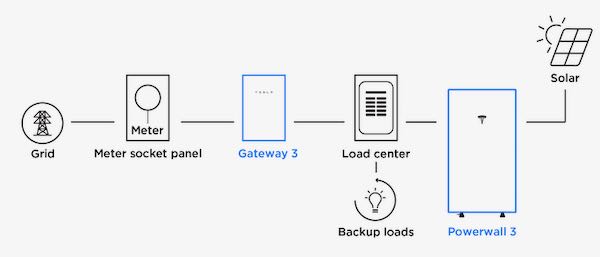
Noise Levels and Neighborhood Impact
Noise plays a crucial role in system selection. Home standby generators are super loud compared to battery backup systems.
This noise can affect neighbors, especially in residential areas. Some areas have noise regulations that should be considered.
Battery backups are quiet, creating nearly no disturbance. Their silent operation is a significant benefit for many homeowners.
Choosing a backup system involves weighing noise against performance needs and neighborhood regulations. Consideration of surroundings can prevent future issues.
Lifespan and Durability
When selecting a backup system, lifespan and durability are critical factors.
Home standby generators generally offer a decent lifespan when maintained properly. Regular maintenance can help ensure they last for many years.
Battery backup systems also have a decent lifespan. Modern advancements in battery technology have improved their durability and reliability.
One example is the 10 year warranty on the Tesla Powerwall 3. Whereas the Generac 26,000 Watt dual fuel air colled whole house home standby generator comes with a 5 year warranty.
Homeowners should weigh these factors when deciding which system best fits their long-term needs. Analyzing durability can provide peace of mind and value.
Installation and Space Requirements
Choosing a backup power solution involves considering space needs.
Home standby generators often require a dedicated outdoor area. They need space for ventilation and easy access for maintenance.
In contrast, battery backup systems are more compact. They can be installed indoors or out, depending on the setup.
Both systems need professional installation for safety and efficiency. This ensures optimal performance and code compliance.
Fuel and Energy Source Considerations
Fuel choice is crucial when selecting a home standby generator. These generators often rely on propane, natural gas, or diesel fuel.
Each fuel type presents distinct benefits and challenges. Propane and natural gas are usually more accessible but require supply lines.
In comparison, battery backup systems draw power from stored energy, potentially charged via solar panels. This option provides renewable energy benefits, reducing environmental impact.
Here are key points to consider:
- Availability and cost of fuel
- Sustainability of energy source
- Storage and maintenance needs
Choosing the right energy source requires assessing home energy demands and local resources.
Conclusion: Making the Right Choice for Your Home
Choosing between home standby generators and battery backup systems depends on individual needs and circumstances. Evaluate your priorities: is it power capacity, environmental impact, or cost efficiency?
Consider the duration and frequency of power outages in your area. This can guide you towards the most effective solution. Consulting with professionals will ensure you make an informed decision.
Ultimately, both options provide peace of mind. Whether it’s the consistent power from a generator or the clean energy of battery storage, you’ll be prepared.
Are you looking for a solar PV system with battery backup for your home? Contact Synergy Power today to learn how we can help you with your home energy needs. Want to read more? Check out how net energy metering and battery storage work in this blog post.


